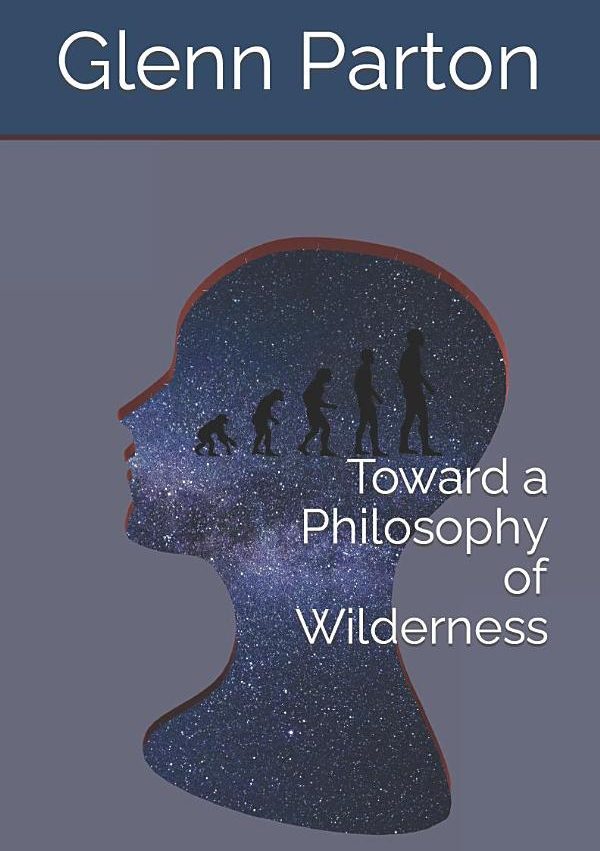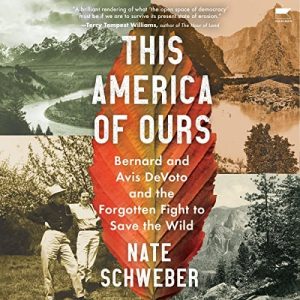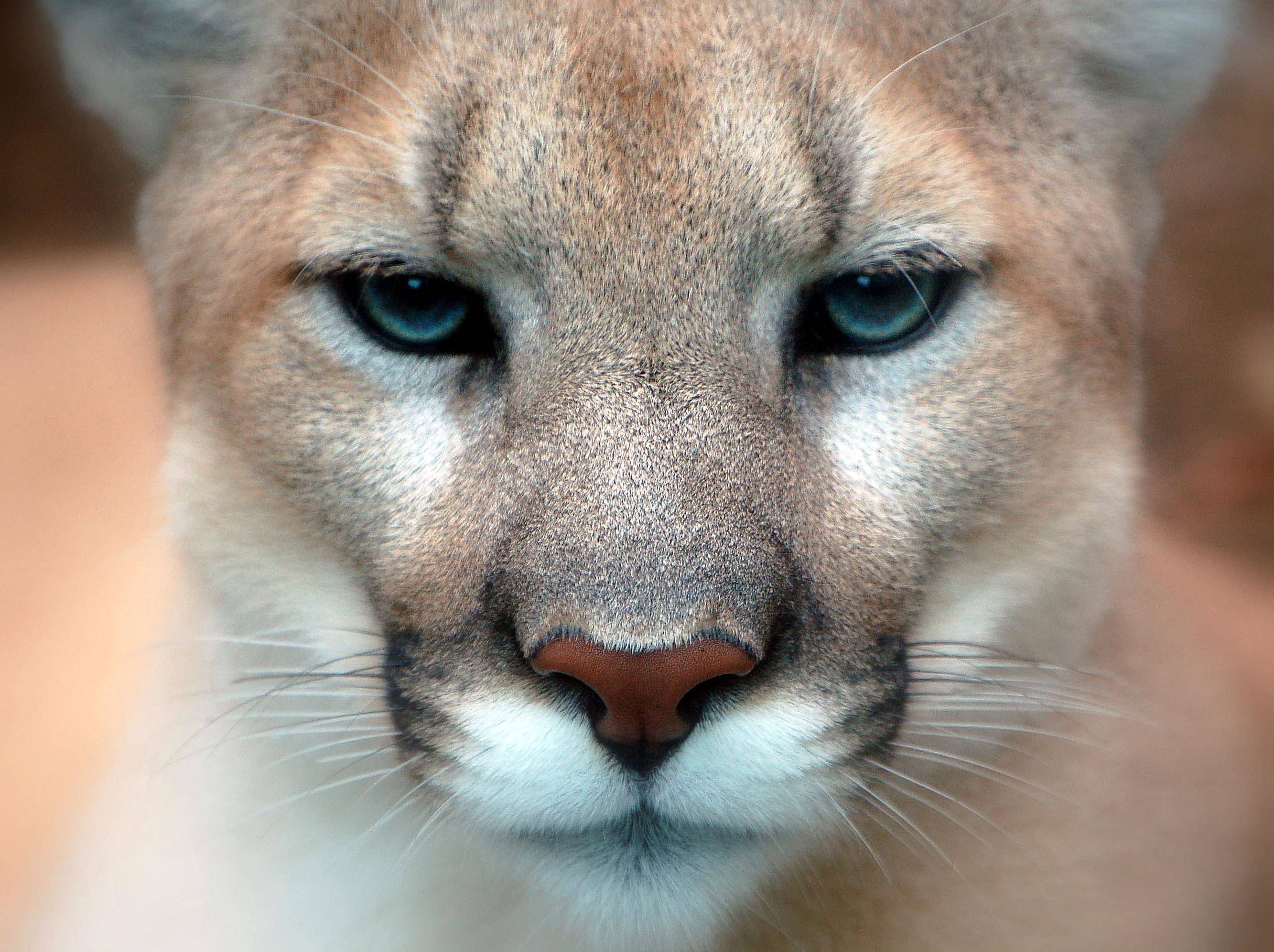Toward a Philosophy of Wilderness
Glenn Parton recently published Toward a Philosophy of Wilderness. The book is profiled below. For more background, Parton previously wrote about this philosophy in his “Wilderness Walking” series in Rewilding Earth.
Summary: The book articulates a philosophical anthropology or evolutionary ontology as the basis for a vision of utopia that is easily achievable in the modern world. We have misunderstood ourselves since the Neolithic Revolution, and the history of Western philosophy reflects our failure to solve the enigma of human nature, which is that we are the “rational animal” who is torn between two primary drives: the drive to return to the wilderness from whence we came and the drive to build high civilization. A proper understanding of the dialectical dualism of human nature solves the riddle of human existence and justifies an alternative civilization in which we live on the Edge of a Half Wild/Half Highly Civilized planet.
Excerpt from the Book: The Preface
My intent in these pages is to introduce a philosophy of wilderness that has largely been neglected for more than 25 hundred years, since Socrates, Plato, and Aristotle, not that no significant wild-concepts have been forged, but rather that the importance and centrality of wilderness has not been recognized as a philosophical subject in its own right. Wilderness, to the degree that modern Western philosophy has concerned itself with it at all, has been subsumed under what is broadly called eco-philosophy, an area of study that has complicated and confused the meaning and significance of wilderness almost as much as it has shed light on it. Eco-philosophy understands human nature in terms of its interconnections and interactions with the natural world, with an emphasis on repairing and healing the divide or dualism between humans and nature that has been imposed on us by techno-industrial civilization.
My critique of eco-philosophy concerns its theory of human nature that fails to understand the necessary conditions for human self-realization. In contrast to eco-philosophy, I offer a philosophical anthropology or evolutionary ontology that does justice to the dualistic nature of human existence by steering between the Scylla of monism and the Charybdis of Cartesian dualism. I argue that the human being is the passage between two worlds, wilderness and civilization, which means that we must live on the Edge between these two qualitatively different worlds, and spend part of everyday (or every few days, or every few weeks) in wilderness on the one side and spend part of everyday (or every few days, or every few weeks) in high civilization on the other side in order to be healthy and happy. By high civilization I mean a form of social existence that is free to a large degree from toil, suffering, ugliness, and dependency, which certainly requires a radically different socio-economic order than what we have now.
I offer a vision of utopia based on a proper understanding of human nature, entailing a theory of the human mind, how it works and why it must function properly, normally, dialectically, if we are to evade world disaster. This vision is realizable, given the scientific and technological wealth available in the modern world. The vision I propose is: Half Wild Earth/Half High Civilization, with the human experience of Beauty as the “bridge” between these two worlds, a bridge that is the dialectical path of human self-realization.
Furthermore, I argue that it is through an aesthetic wilderness experience that modern humans can and should participate in the wilderness on a regular and easily available manner, and I find in Kant’s “Critique of Judgement” a theoretical explanation for the experience of the beautiful that is relevant and essential for understanding a genuine wilderness experience, and for developing a philosophy of wilderness with a vision that gets us out of capitalism (market and planned varieties) and toward a healthy and happy lifestyle. Kant’s classic text (implicitly) contains the idea that an aesthetic wilderness experience is inherently revolutionary because it entails a kind of self-transformation that contradicts the ordinary-conformist lifestyle that is killing all of life on this planet. This kind of radical personal experience can be found nowhere else on earth—not in Art or meditation—only in wilderness. This aesthetic transformation is the subjective necessary condition for building a utopian civilization (or at least a significant approximation to one). To the degree to which eco-philosophy minimizes the value and importance of wilderness, and the aesthetic wilderness experience, it lowers the aims of radical qualitative change and falls short of high civilization.
We must secure a Half Wild Earth for the sake of biodiversity and for the sake of human fulfilment. Regarding the Half Wild Earth proposal, I rely on the science of conservation biology for designing a network of wilderness reserves that covers half the earth, since that is what the best available data and research shows (right now) is necessary for sustaining biodiversity and wild evolution. I had already reached the same conclusion for a Half Wild Earth through intuitive and philosophical means many years ago, and this convergence of science and philosophy finally motivated me to write this book. If it was not for the fact that the two greatest philosophers of the 20th Century, Herbert Marcuse and Rudolf Bahro, did not assign enough importance to wilderness as the fundamental basis for a truly rational society I would not have needed to write it because many of my ideas in this book are developments and extensions of what is contained in their writings.
Any credible vision of utopia must be grounded in present everyday reality, or it falls victim to Marx’s criticism of Utopian Socialism that it provides no historical path to reach its ideals, so I identify potentialities and tendencies for revolutionary change in a world in which wilderness is disappearing, along with the life-force that animates it. The wild self, which is a guiding light for a livable future, is flickering, but not yet gone out? We must stimulate and strengthen it by building a world-wide wilderness movement so we can journey (on foot) between wilderness and actually existing civilization toward a new and better civilization, high civilization, in which the true history of human beings will begin. Currently, we live in what might accurately be called low and sinking-into-death civilization, but the strategy for a Half Wild Earth can take us beyond Capitalism (in all its versions of endless material expansion) and prepare the ground for a dialectical lifestyle that will take us the rest way of the way to utopia (or to a significant approximation of it). I articulate a visionary alternative society, and I identify a strategy along with some existing social tendencies that support it.
My vision of utopia rests on a theory of human nature that cannot be proven in a scientific sense (and philosophy should never be evaluated by this standard), but my theory has explanatory power with regard to the worsening ecological crisis and the civilization crisis in which we are tearing ourselves and our world into unsurvivable parts. My theory has its origin in ancient Greek philosophy, where the definitive elements of the human being were first articulated, “Man is the rational animal,” which is a conception of human existence worked on, and worked out, through the history of philosophy until it reaches, I argue, an ontological understanding that the “human being is the passage between two worlds.” What is regarded in philosophy as the modern mind-body problem is a continuation of the problem in ancient Greek philosophy concerning the inherent enigma of the “rational animal,” that my theory explains, and in so doing, it provides a solution to the ecological crisis of the modern world that has become a death-sentence for all of life on Earth. Only a proper ontological understanding of the unique dualism of human nature—that corrects the false solution initiated by the ancient Greek philosophers, notably Plato and Aristotle—can generate a realistic vision of utopia, or an achievable ideal relationship between person and planet, civilization and wilderness.
Learn more and order the book here: Toward a Philosophy of Wilderness.
Glenn Parton is a former student and friend of Herbert Marcuse and an incurable lover of wilderness, and he would like to hear comments from others regarding the basic ideas he shares in his “Wilderness Walking” essay. Readers are encouraged to email him at: windandrain51@gmail.com.




Years ago, I came across and saved some articles by Parton in The Trumpeter (Journal of Ecosophy). It seems he just keeps picking away at the same thing, even though decades apart and shifting focus every time. How he can seemingly repudiate his previous “big ideas” but without even explaining why, because it doesn’t seem to be a development curve.
The Machine in Our Heads, Glenn Parton, Trumpeter 1997
Humans-in-the-Wilderness, Glenn Parton Trumpeter 1995
Sustainable Wilderness: Sustainable Belief, Glenn Parton, Trumpeter 1994
Even then, it is unstructured, repetitive and self-indulgent, while seemingly identifying the (his) next big thing – the Edge. I really can’t see what audience he is aiming at other than other navel gazers who delight in overcomplication of simple emotions and instincts. It is, perhaps, his omphaloskepsis.
Can’t at all agree with this. The entire planet should be wilderness, and humans should all be living as hunter-gatherers. Glenn Parton just proposes yet another human supremacist attitude, albeit not as bad as the dominant one. “My critique of eco-philosophy concerns its theory of human nature that fails to understand the necessary conditions for human self-realization.” Could Parton be any more self-centered? Does anyone think that the trees, grasses, predators, ungulates, insects, bacteria, viruses, land, rivers, oceans, sky, air, etc. care about “human self-realization”? Eco-philosophy is far superior to Parton’s idea.
Agriculture means killing of native plants & animals, destruction of native ecosystems & habitats, and it necessarily causes human overpopulation. None of these are acceptable. Humans’ only legitimate role on the Earth is to expand our consciousness. Civilization, like the agriculture that causes it, is war against the Earth and all who live here.
Parton is like someone advocating voting for Democrats because they’re supposedly a lesser evil, while trashing a truly progressive, peace, or environmental party. He allows the Earth, its ecosystems & habitats, the life here (including people) to have SOME wilderness. How magnanimous! Instead, we should advocate and fight for the entire Earth and all the life here, and live as lightly as possible, while focusing on expanding our consciousness, as aesthetic monks and some traditional indigenous people have done. Instead, we focus on all the wrong things and even obsess on them. That’s why, after 10,000 years of wrecking the planet with agriculture, human overpopulation, and all that resulted from these things, we’re in this huge mess.
Civilization, like agriculture, should be rejected. Of course the needed changes will likely take thousands of years; after all, that’s how long it took to create this mess. But all that means is that we need to get started immediately.